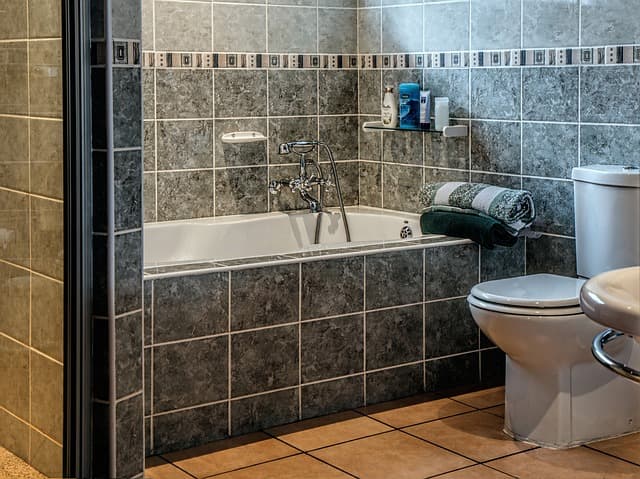How to Register Your Construction Company
By Editorial Team
Updated on November 8, 2023

If the pandemic offered us insight into anything, it’s that home renovation and construction have plenty of public interest. This interest doesn’t seem to be fading. The construction industry is a booming one, as a contractor or entrepreneur (or both), you may be curious about starting and registering your own business.
The demand for skilled contractors is definitely there, but what are the logistics when it comes to registering a construction company?
If you’re looking to transition into owning your very own business in Canada, now is as good a time as any to jump right into this venture. As our economy grows, your business can grow alongside it. This article will list the primary steps and considerations that you should take in order to turn your construction company business dream into a reality! Moreover, we’ll be looking specifically at Ontario and Alberta.
How to register your construction company in Canada

Determine your type of business
Regardless of the province where you’re located, if you’re registering a business in Canada, it will need to be recognized by the Government of Canada as well as the Canada Revenue Agency. This means you’ll have to obtain a legal license for your business.
This process will involve deciding whether you want to register as a small business or an incorporated company. We’ll go over the pros and cons below but would like to note that many of the larger Canadian construction companies choose to be incorporated for the reasons we’ll detail below.
Personal liability
When you register as a small business, you are personally liable for the actions of your business alone. This means that any liabilities your business incurs will be charged to you. When it comes to incorporation, the business will be separate from you and thus, will have its own liability risk that’s separate from your individual person.
Name
Unfortunately, a small business license will not offer you name protection, so it’s easy to have your name or something similar used with no real recourse. In contrast, when incorporated you do have name protection and may be able to seek infringement recourse if someone decides to register a similar business name.
Taxes
With a small business, you’ll be taxed at a personal income level as registering a business means that it’ll automatically become part of your personal tax account. With an incorporated company, the corporation has its own tax account independent from yours. Do bear in mind this will require you to file both a personal and business tax return each year. Corporations are privy to lower tax rates and other tax concessions.
Registration length
The length of your business registration will depend on the province you’re in. In Ontario, a business license will be valid for 5 years and once this time is up you’ll be able to register your business for another 5 years. Otherwise, the Ontario Government will automatically cancel it. In Alberta, your business license will be active indefinitely and remain valid unless you choose to dissolve the business.
In regards to an incorporated company, it’s continual. In Ontario, the corporation has no yearly filings. However, in Alberta, you’ll be required to file an annual return in order to remain active.
Regulations and licensing
In Canada, there are specific licensing requirements when it comes to skilled trades. In many cases, each Province has their own rules and you can determine this by checking with the College of Trades or the equivalent to figure out what these are.
For Ontario specifically, there are trades referred to as compulsory trades which need licensing or certifications to legally operate. Here is a brief list of some of the trades that do require specific licensing:
Electrician
Gasfitter
Refrigeration / AC
Sheet metal worker
Plumbing
Oil Burner Mechanic
For the very specific trade licensing specifications check here for Ontario and here for Alberta. Do keep in mind that for certain cities you’ll need municipal licensing to practice certain construction projects.

Health and safety regulations
Health and safety are very important considerations when it comes to registering a business. You want to make sure that your workers are protected. In regards to the many trades covered under the construction sector, you’ll need to register with your provincial Workers Safety Board. It’s also recommended to look into the workplace safety regulations as defined by the Ministry of Labour, Skills and Training Development. For construction companies, there is a long list of considerations as this is a career with many risks. This includes covering areas such as fall prevention, hazardous substances, scaffolds, and so forth.
You can find Ontario regulations here, and Alberta regulations here.
Trade associations
In the construction industry, trade associations are a useful tool to connect with others in the field locally as well as internationally. Some options are:
If you're just getting started in this industry, registering with a trade association comes with many benefits. These include: saving money, gaining guidance, networking, learning from others in the field, maintaining the best construction and renovation practices, boosting your company reputation.

Insurance
Insurance is a crucial consideration for any business, but especially in the construction industry where you’ll need protection against various risks. Without insurance, you’ll be liable for every and all costs related to the workplace including injuries, broken equipment and so on. To do this, contact an insurance company and obtain construction liability insurance that covers both general and property liabilities. In some instances, you’ll also want to cover any vehicles your business is using.
In specific cases and with specific clients, you may require additional types of insurance including workers compensation insurance, disability insurance or unemployment insurance.
Follow these links to register your business in Ontario and Alberta.
Follow these links to incorporate them in Ontario and Alberta.
Find contracts for your home renovation company
RenoQuotes.com can help you get home renovation contracts. We get requests from clients looking for trusted home renovation professionals just like you. Fill out the form on our homepage (it only takes a few minutes), and you will receive information on how to get new clients for your renovation company through our service.
Looking for something else?
Related articles
The latest industry news, interviews, technologies, and resources.

Editorial Team
•08 Nov 2023
We are currently going through an unprecedented situation around the world. It's hard to predict how much time the containment measures adopted to control the COVID-19 pandemic will last and we can see how these circumstances may cause anxiety, especially for business owners. As you probably know, the different levels of government (federal, municipal and provincial) are creating financial assistance programs for individuals and companies.

Editorial Team
•31 May 2024
Construction projects undertaken by the federal government of Canada are paramount for developing and preserving essential public infrastructures. Public Services and Procurement Canada (PSPC) is key in overseeing such projects, ensuring construction contracts are awarded and supervised accordingly. However, a crucial component of said process involves payments made to contractors and contract-holding companies. A prompt and fair payment system is mandatory for ensuring projects are completed successfully while healthy relationships with the construction industry are maintained.

Editorial Team
•03 Jun 2025
Whether you want to modernize your home, reclaim some living space, create a unique partition, or accommodate a family member with reduced mobility, installing sliding doors is a smart choice — they’re both practical and timeless.

Editorial Team
•23 Jul 2025
When you're about to start home renovation work, getting insurance is essential to avoid major headaches if something goes wrong. In 2025, with rising material costs and an increase in damage linked to natural disasters, this precaution is more important than ever. So why is it so crucial? And how do you go about getting insurance? SoumissionRenovation.ca gives you the keys to securing foolproof coverage.

Amanda Harvey
•03 Nov 2025
Tiles come in all kinds of colours, shapes and sizes, keeping bathroom floors waterproof and beautiful. However, like any home surface, they need proper maintenance to uphold their elegance while preventing cracking, mould or mildew growth.